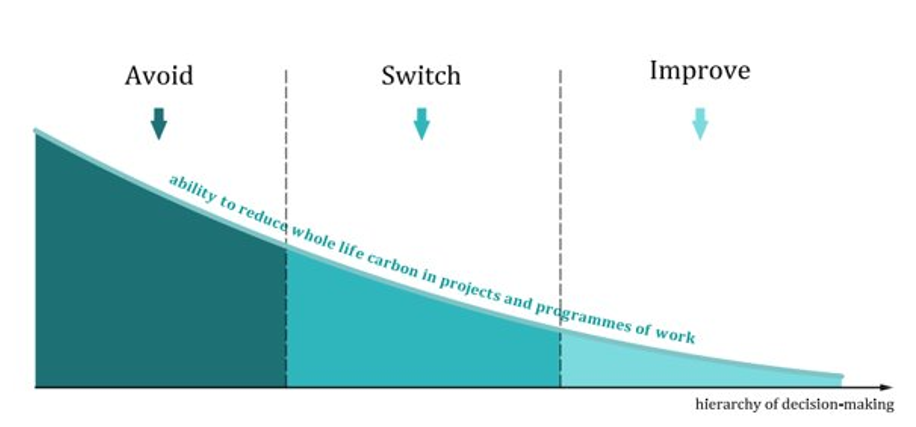New Year Resolutions for a Sustainable Future: Embracing PAS 2080 for Decarbonisation
As we welcome another year, many professionals are setting New Year resolutions to enhance their careers, improve personal well-being, and make a meaningful impact on society. One impactful resolution for 2025 is to contribute actively to sustainability efforts by understanding and implementing PAS 2080, a leading standard for managing carbon in infrastructure and buildings.
Principles of PAS 2080
PAS 2080 is a global framework for the management of carbon in buildings and infrastructure commissioned by the Green Construction Board. A 2023 update expanded the scope from infrastructure to cover all of the built environment. Further changes included an increased emphasis on whole life carbon and encouraging a consistent approach across the sector to support the net-zero transition.
This framework looks at the whole value chain, aiming to reduce cost and carbon through intelligent design, construction and operation and ensure carbon is consistently considered and quantified at key points in project delivery.
The standard considers “value chain members”, who are organisations and stakeholders involved in creating, operating and managing assets and/or networks. A key focus of PAS 2080 is on these members showing leadership and integrating carbon management into their decision making throughout the project life-cycle. There is a guidance document available on using the standard, also produced by the Green Construction Board, for those who need support.
PAS 2080 in Application
Using PAS 2080 for building and infrastructure projects allows organisations to measure and monitor carbon reduction and to profit from the benefits of reducing carbon emissions. It also demonstrates a commitment to reducing carbon and to the sector’s transition to net zero.
It allows for carbon management, and monitoring at a portfolio level to help deliver the whole life emissions reductions needed for a net zero industry by 2050.
The standard gives a framework for managing carbon across the project stages and applying a carbon reduction hierarchy based on the principles of “Avoid, switch, improve”. This is linked with the ability to reduce carbon being at its greatest earlier in a project (shown below in a figure taken from the latest PAS 2080 document).

Decarbonisation
Value chain members need to identify all activities that result in carbon emissions or removal that they control or influence to develop a comprehensive list of emissions and removals to be assessed, but also to manage the reduction of those emissions.
To enable efficient organisation and presentation of information and comparability in reporting, PAS 2080 sets out a modular approach to GHG emissions life cycle boundaries across the Before Use (modules A0-A5), In Use (B1-B9) and After Use/End-of-life stages (C1-C4), plus information beyond the system boundary (D). This mirrors the approach for the presentation of Environmental Product Declaration information according to BS EN 15804 and the wider CEN TC350 standards programme.
Temple’s PAS 2080 Track Record
Temple has extensive experience working with PAS 2080 for clients such as the Environment Agency, Office of Rail and Road, DfT, Network Rail, HS2, and National Highways, who were the first road organisations in the world to achieve PAS 2080 accreditation. Temple has assessed DfT portfolio project data for alignment with PAS 2080 as part of the Industrial Deep Decarbonisation Initiative.
In our role seconded to the Environment Agency (EA) as National Carbon Specialist, we worked with their national carbon team on the implementation of an ambitious carbon management process for EA construction projects based on PAS 2080 principles. This involved training EA and contractor staff on the process and the tools developed to implement it. We also conducted verification of the carbon tools that accompanied business cases to ensure they were accurate and delivering the required carbon emissions reductions. We also worked with individual project teams holding carbon reduction workshops and providing advice and support on the process and specific emission reductions.
PAS 2080 is rightly recognised to be a key tool for delivering a net zero built environment. It requires organisations and individuals to demonstrate leadership and commit to monitoring and managing ambitious carbon emission reductions on their projects. Temple has experience in supporting and driving this work at all levels of organisations and stages of projects, and we are excited to work with any clients who want to excel in this area.